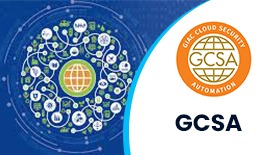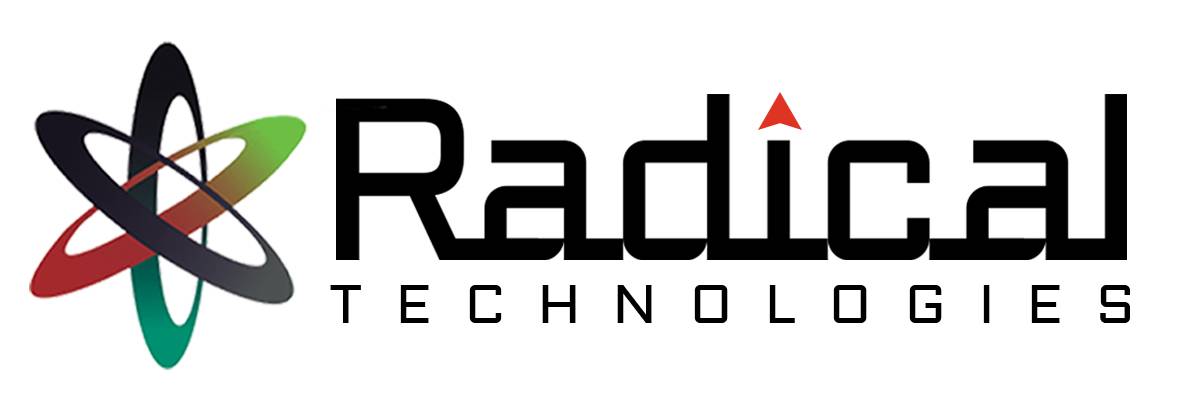- Home
- About Us
- Courses
- Combo Courses
- Programming Combo Courses
- Non Programming Combo Courses
- Linux & Cloud Combo
- Linux & DBA Combo
- AWS & Devops Combo
- Salesforce Combo
- Azure Admin Combo
- Azure Cloud & Azure Devops Combo
- Tableau Informatica Combo
- Power BI Informatica Combo
- Power BI & MSBI Combo
- Salesforce Manual Testing Combo
- Salesforce Tableau Combo
- Data Analytics Combo
- MCSA Azure Combo
- Powerplatform Combo
- ADF & Power BI Combo
- BA & Tableau Combo
- PG Diploma
- Online Schedule
- Offline schedule
- Job Openings
- Certifications
- Contact Us
GCSA

694 Satisfied Learners
GIAC Cloud Security Automation (GCSA) Training in Pune/ Online
Duration of Training : 32 Hours
Batch type : Weekdays/Weekends
Mode of Training : Classroom/Online/Corporate Training
Why Radical Technologies
- Microservice Security
Understanding of microservice architecture and implementation in a DevOps environment. The candidate will show familiarity with the architecture’s attack surface and appropriate security controls used in various architectural designs and conditions.
- Cloud Security Fundamentals
Basic knowledge of Amazon Web Services (AWS) cloud architecture components, Identity and Access Management, usage of the command-line interface, as well as general knowledge of how to secure the environment.
- Cloud Security Monitoring
Understanding of tools for monitoring and assessing a cloud environment. The candidate will show familiarity with tools that perform vulnerability assessments, threat detection, compliance benchmarking, audit logging, log evaluation, and network collection.
- Compliance as Code
Understanding of the Secure DevOps auditing controls and how to leverage automated scanners to automate policy requirements.
- Configuration Management as Code
Understanding of managing infrastructure using programmable configuration management toolsets. The candidate will demonstrate an understanding of the new attack surfaces presented by CI, CD, and CM tools and familiarity with techniques for how to harden these tools.
- Container Security
Understanding of container security issues, hardening containerized environments, container orchestration tools, and running these workloads in the cloud.
- Continuous Security Monitoring
Understanding of what metrics and monitoring tools are needed to inform security efforts in cloud and DevOps environments. The candidate will show familiarity with how this data is collected, parsing log files, network collection, setting thresholds, and alerting the security team.
- Data Protection and Secrets Management
Understanding of cloud facilities used for storing and securing data at rest and securing data in motion. The candidate will also show the ability to select appropriate encryption configurations, and familiarity with key management options and practices, and secrets management practices.
- Deployment Orchestration and Secure Content Delivery
Understanding of deployment patterns, such as canary and blue/green deployment processes, their benefits, and how to choose which approach is appropriate for a given situation. The candidate will demonstrate familiarity with the purposes and issues involved with using Content Delivery Networks (CDN). The candidate will show understanding of methods to safely bypass the Same Origin Policy, CDN configuration practices and issues, and demonstrate ways that access to CDN content can be controlled securely.
- DevOps Fundamentals
Familiarity with Secure DevOps fundamentals and culture, including terminology, automation, cloud infrastructure integration, and security risks.
- DevSecOps Security Controls
Understanding of the DevOps deployment pipeline and security considerations for each step of the Continuous Delivery and Continuous Integration processes.
- Runtime Security Automation
Understanding of virtual patching in the cloud using Security as a Service, such as the Web Application Firewall. The candidate will demonstrate an understanding of how to configure those services to protect against common website attacks.
- Secure Infrastructure as Code
Understanding of setting up and managing cloud infrastructure via code. The candidate will show familiarity with cloud provider and third-party tools used to manage cloud infrastructure resources.
- Securing Cloud Architecture
Understanding of securing cloud architecture using Continuous Integration / Continuous Deployment / Continuous Delivery pipelines. The candidate will show familiarity with Azure and AWS toolsets to track work items, code, test, build, and release, and how each stage is secured and automated.
- Serverless Security
Familiarity with serverless architectures, their features, advantages, security concerns, and tactics for deploying effective security in serverless implementations.
Learn GCSA – Course in Pune with Training, Certification & Guaranteed Job Placement Assistance!
Online Batches Available for the Areas
Ambegaon Budruk | Aundh | Baner | Bavdhan Khurd | Bavdhan Budruk | Balewadi | Shivajinagar | Bibvewadi | Bhugaon | Bhukum | Dhankawadi | Dhanori | Dhayari | Erandwane | Fursungi | Ghorpadi | Hadapsar | Hingne Khurd | Karve Nagar | Kalas | Katraj | Khadki | Kharadi | Kondhwa | Koregaon Park | Kothrud | Lohagaon | Manjri | Markal | Mohammed Wadi | Mundhwa | Nanded | Parvati (Parvati Hill) | Panmala | Pashan | Pirangut | Shivane | Sus | Undri | Vishrantwadi | Vitthalwadi | Vadgaon Khurd | Vadgaon Budruk | Vadgaon Sheri | Wagholi | Wanwadi | Warje | Yerwada | Akurdi | Bhosari | Chakan | Charholi Budruk | Chikhli | Chimbali | Chinchwad | Dapodi | Dehu Road | Dighi | Dudulgaon | Hinjawadi | Kalewadi | Kasarwadi | Maan | Moshi | Phugewadi | Pimple Gurav | Pimple Nilakh | Pimple Saudagar | Pimpri | Ravet | Rahatani | Sangvi | Talawade | Tathawade | Thergaon | Wakad


